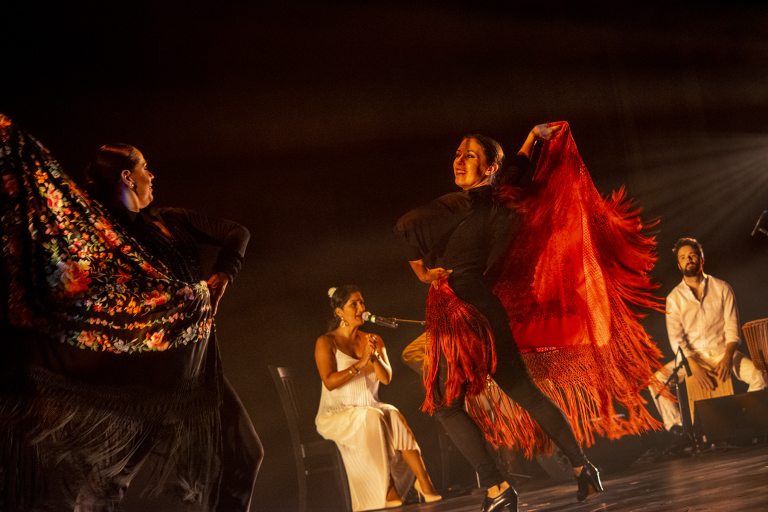
Pasión y Arte continues to strengthen flamenco’s legacy as a classical form but expands the trajectory of modern feminist flamenco through its classes, performances, and national tours.
In nine original productions and its presentation of the 2012 and 2014 Philadelphia Flamenco Festivals, Pasión y Arte empowers women through self-expression by embracing bold experimentation that challenges traditional flamenco gender stereotypes. The Tabloa, danced by Philly’s own Pasión y Arte, includes live musical accompaniment for a fully immersive experience.
What is a Tablao?
Like the atmosphere once created when beat poets gathered to recite verses, Tablao refers to the casual venues where flamencos showcased their dancing until the art was institutionalized in theatrical performances. Flamenco emerged as a unique art form in the 15th century. Spanish Gypsies (or Roma) danced flamenco privately in their rural homes. The dance gradually migrated from the countryside to the cities in the south of Spain, where Gypsy artists performed on the streets and in plazas. By the 1840s, nightclubs called “Cafes del Cante” began to host flamenco Tablaos, giving flamencos the opportunity to demonstrate their extraordinary skills at improvising movement within the confines of strict musical and rhythmic structures. The cafes were the first enterprises to pay flamenco dancers, singers, and musicians and as a result commercial flamenco was born. These performances helped flamenco to grow and introduced non-Gypsy audiences to the art form.
Pasión y Arte’s reiteration of Anatomy of Tablao recreates the feeling of the original Tablao setting by using the intimacy offered by Longwood's Exhibition Hall. Anatomy of Tablao includes a section during which Pasión y Arte dissects all the different components of a traditional Tablao performance. Artistic Director Elba Hevia y Vaca shows how the dancers communicate with the musicians throughout their dance in a traditional Tablao in the first half of the performance.
While you’re here, don’t miss free International Organ Day organ music by Thomas Gaynor at 11:30 am, 2:30 pm, 6:30 pm, and 7:30 pm in our Ballroom—just steps away from the Exhibition Hall.